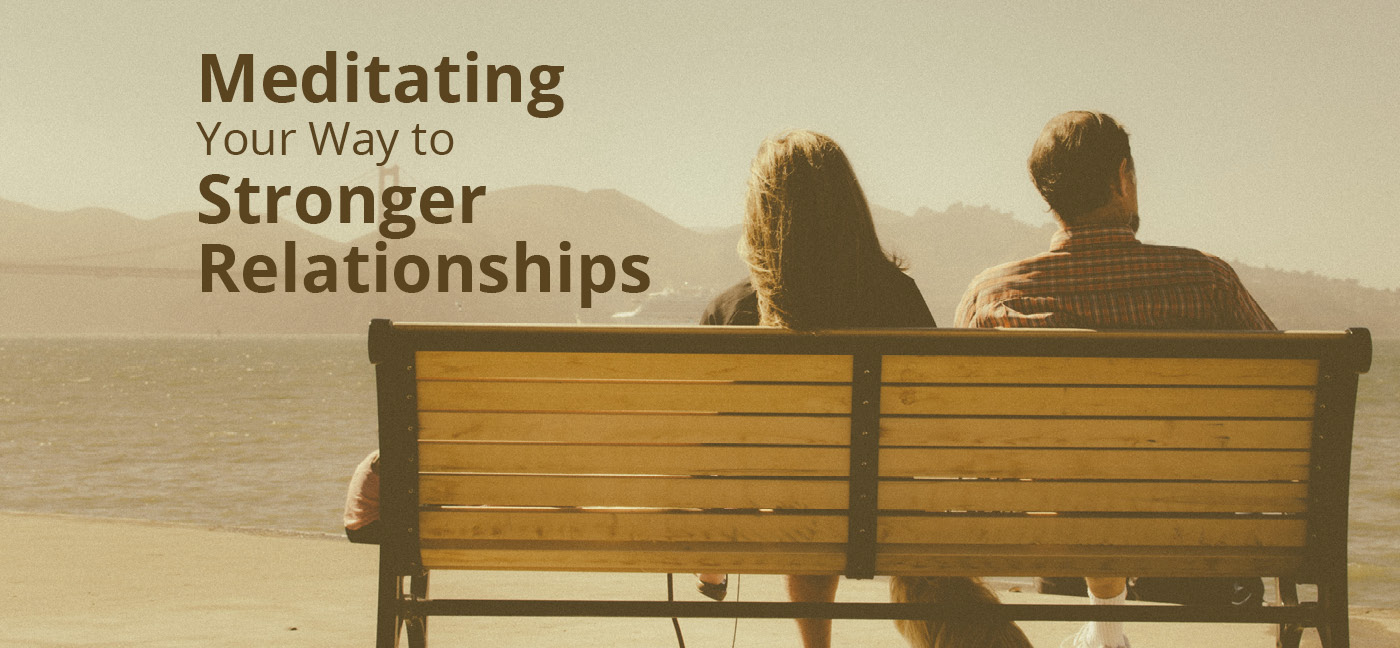Meditating your way to stronger relationships
 You experience relationships every day. We’ve never met, but right now, you are relating with me as you create an opinion about my writing. Our lives are surrounded by relationships and they have a powerful impact on us.
You experience relationships every day. We’ve never met, but right now, you are relating with me as you create an opinion about my writing. Our lives are surrounded by relationships and they have a powerful impact on us.
By increasing your mindfulness, you can make your relationships, the important and the passing ones, positive experiences, and you can strengthen your faith: in yourself; in others; and in your relationships.
Through meditation, you increase your mindfulness. You probably know some of the benefits of this such as a stronger immune system, stress reduction, and better management of anxiety. But did you know it also helps you to increase your empathy and improve your satisfaction with relationships?
Here are three relationship benefits gained through meditation:
1. Learn to be mindful of how your thoughts and actions affect your relationships.
Think of a recent, important conversation with a close relationships (such as a spouse or close friend). Do you feel like you were mindful during the conversation or did emotions run high? Here are some mindfulness guidelines to help with your crucial conversations:
- Come to the conversation with faith in a positive outcome
- Focus on being present and open
- Stay engaged and don’t shut down
- If you feel you are disengaging, use coping strategies such as deep breathing
- If you feel you are being judgmental, of yourself or the other person, stop
- Express empathy for the other person’s different opinion
- If you feel uncomfortable, that’s okay: it’s normal
- Be aware of the other person’s discomfort and offer them support
- Recognize your shared vulnerability
2. Improve your sense of self-worth and stop looking to others for validation. Mindfulness helps you to love and have faith in yourself. In fact, it creates a physiological difference in your brain: you can see a decreased activation of the areas of the brain associated with rumination, according to Biological Psychology. Have you experienced a downward spiral of negative self-talk? We can be our own worst critics! When you shut that down, you love and have faith in yourself. In turn, you won’t need to depend on others for that love and validation, which places unfair expectations and strain on your relationships.
3. Manage your own emotions better so you don’t react as much to others’ actions or words. Meditation also helps change your brain for the better in regards to managing your emotions. A study using fMRI showed that participants who did a short mindfulness intervention were better able to regulate their emotions in response to negative stimuli. The study found that it didn’t need to be extensive periods of mindfulness or meditation, nor did the participants need to be meditation experts to see a difference.
About a year ago, I attempted to make meditation a daily habit.However, when I sat down to do it, I felt a tangible feeling of dread. I thought meditation was supposed to help me with anxiety, but it seemed to exacerbate it!
At the time, I wanted meditation to be an instant cure all. And, I wanted it to somehow work its magic on an infant with difficult sleep habits. As I was trying to meditate, I felt on edge, waiting for the baby to cry.
It took me a long time before I learned consistency. Today, I am slowly learning to be more mindful, but I have learned to notice when I put up emotional barriers blocking other people. When I take the time to meditate (I don’t do it every day, still), I like to use a visualization of a person close to me. As I focus my thoughts on them, I picture a light shining within them that grows and grows. Little, by little, I am learning to see that light in each of my relationships and help it to grow.
I’ve also learned that by strengthing my faith through meditation, I am more satisfied, committed, and invested in my relationships. Over time, I’ve reaped incredible benefits! Have you?
Lauren Elkins is a writer, former IT industry expert, and a mom, with a lot of faith in herself, her family, and God.
![]()



